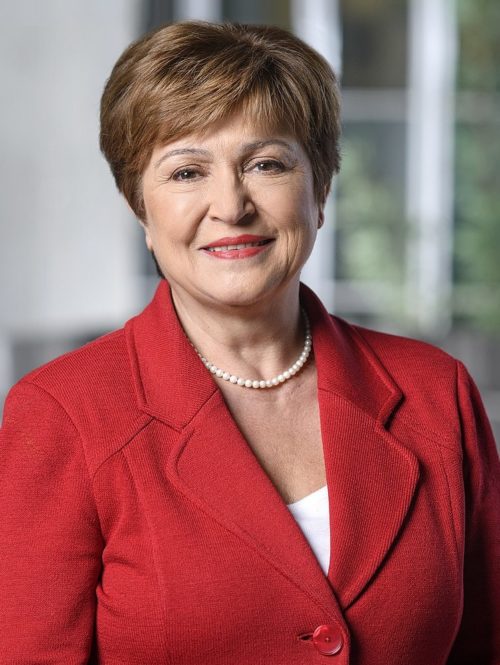The International Monetary Fund (IMF) has said the ongoing Russia-Ukraine war will trigger real hunger in Africa.
IMF Managing Director, Kristalina Georgieva and IMF First Deputy Managing Director, Gita Gopinath disclosed this at a Foreign Policy live event held at the weekend in Washington D.C.
According to the event transcript, Georgieva said countries with high level of dependency will suffer most, especially if the war continues for a long time is going to be quite profound.
“And it is devastating for those that have high level of dependency. To put it very simply, a war in Ukraine means hunger in Africa. So, when we look at these lines of dependency, what we are doing is looking at best policy action that can be taken in different circumstances. And let me frame two.”
“One, it was important before more important today, focus on the most vulnerable people. Those for whom higher energy and higher food prices mean devastation. We encourage countries to direct the little policy space they have to those that are most vulnerable. And second, look at ways in which you can anticipate further developments in policies, especially, central bank monetary policy, and then try to stay ahead of the curve,” she advised.
Georgieva said the IMF stands ready to help its members who are dealing with balance of payments needs, and that includes their ability to get imports of food and other essential needs that they have to meet.
She said the Fund will work very closely with all the other partners of the international multilateral system to help countries address their needs as best possible.
She said the Fund will have its growth projections presented in mid April, and at that point we will be able to report on how we assess the impact of this war on the global economy in more details.
“Our expectation is that what we had in the beginning of the year, which was a small downgrade of growth projections for 2022 by half a percentage point to 4.4 per cent is going to go down further, but would still remain in positive territory,” she said.
Georgieva added: “What we were striving for is for growth to go up and the inflation, that has become a problem, to go down. Instead, we had the exact opposite, growth is going down, inflation is going up. And we are assessing the impact of the war and the sanctions in different parts of the world and different categories of countries”.
She advised countries with high level of dollar denominated debts to check their currency mismatches, think about possibly re-profiling the debts early, instead of waiting until there is a shock directly hitting them.
She said some economies that have been fast to recover from COVID are in a stronger position to face the impact of this shock, adding that central banks will be asked to step up their actions to tackle rising inflation.
“For many emerging markets, tightening of financial conditions is going to be a big shock. And what I want to say today is that they have policy measures to respond, use them early,” she said.
Gopinath said the issue of food insecurity was always quite salient before this crisis, but it’s become even more salient.
“Russia and Ukraine together account for about 30 per cent of world’s exports of wheat, it’s around 15 per cent for corn. And we may not have seen the full effect yet because we know, for instance, for wheat, what matters is the harvest that’s coming around this summer,” she said.
Gopinath explained that with disruptions to that harvest in the summer, it will be easier to see even bigger effects in terms of food reaching different parts of the world.
“So, food prices have gone up in many parts of the world, that just means lower real incomes because they have less money to spend on other things. But in other parts of the world, like in parts of Africa and the middle east, and Asia, we are talking also about real hunger,” she predicted.
She said the IMF is talking about food insecurity, and the social tensions that come along with it.



